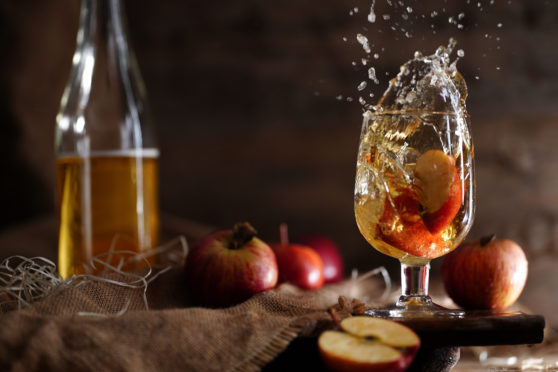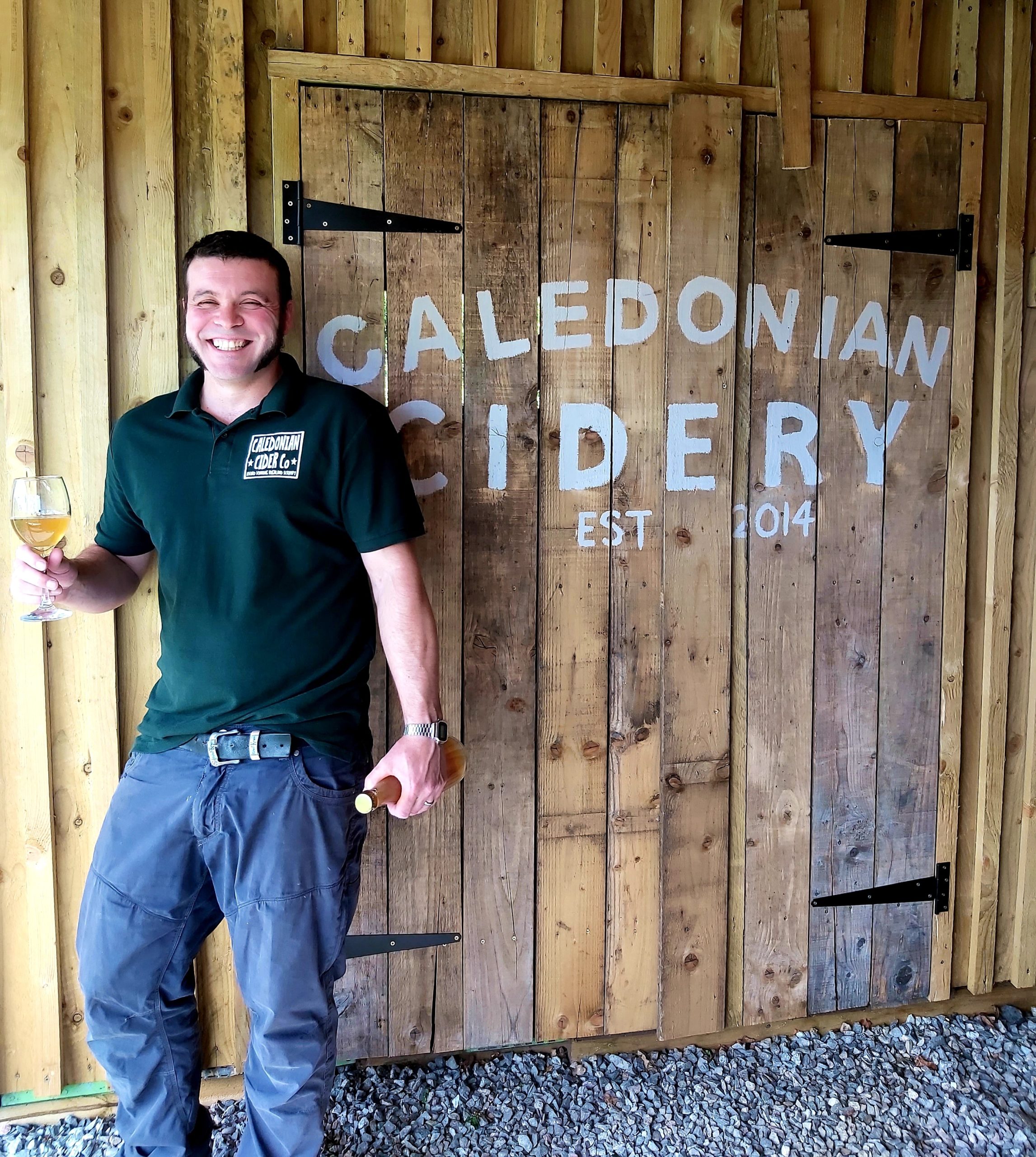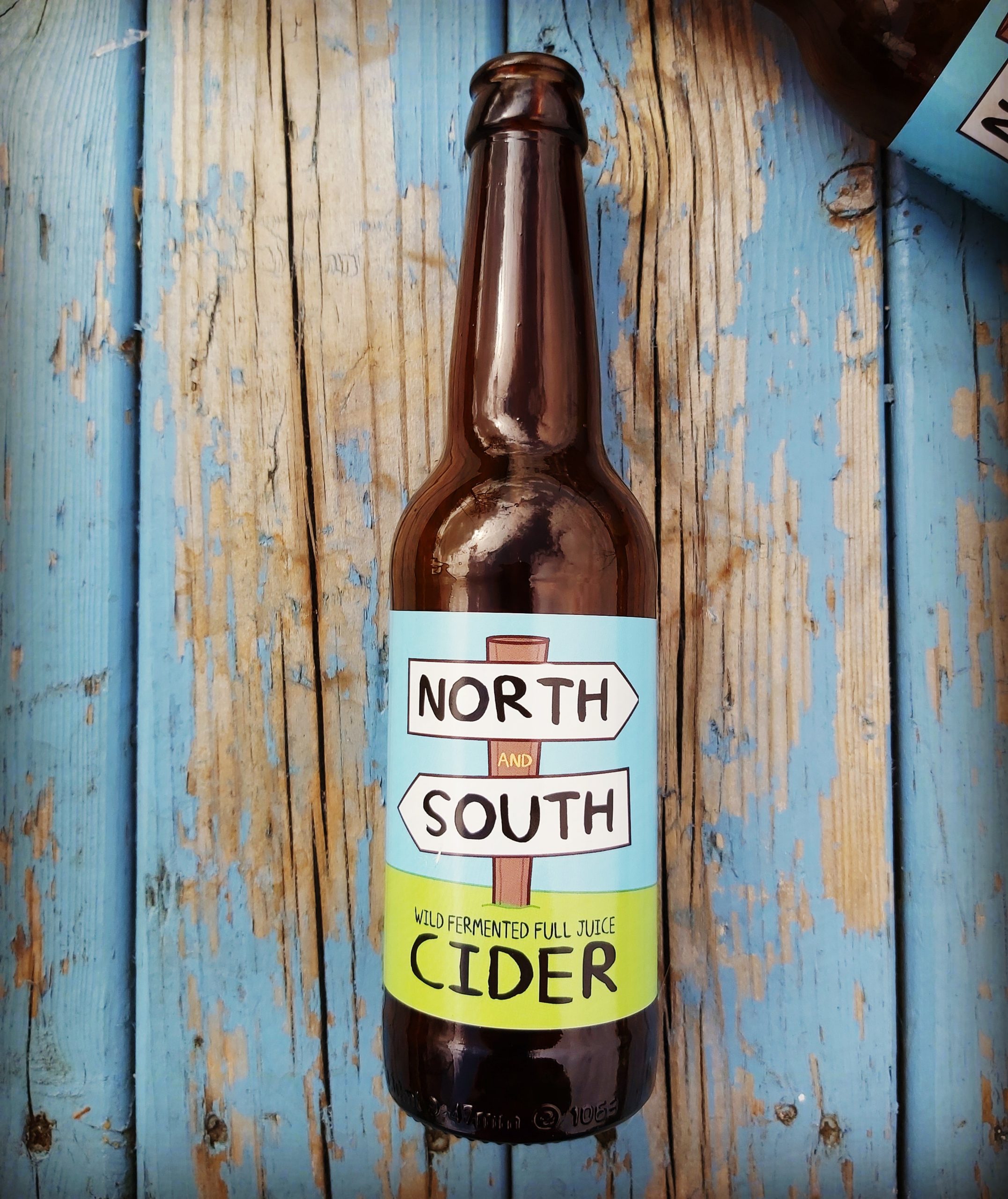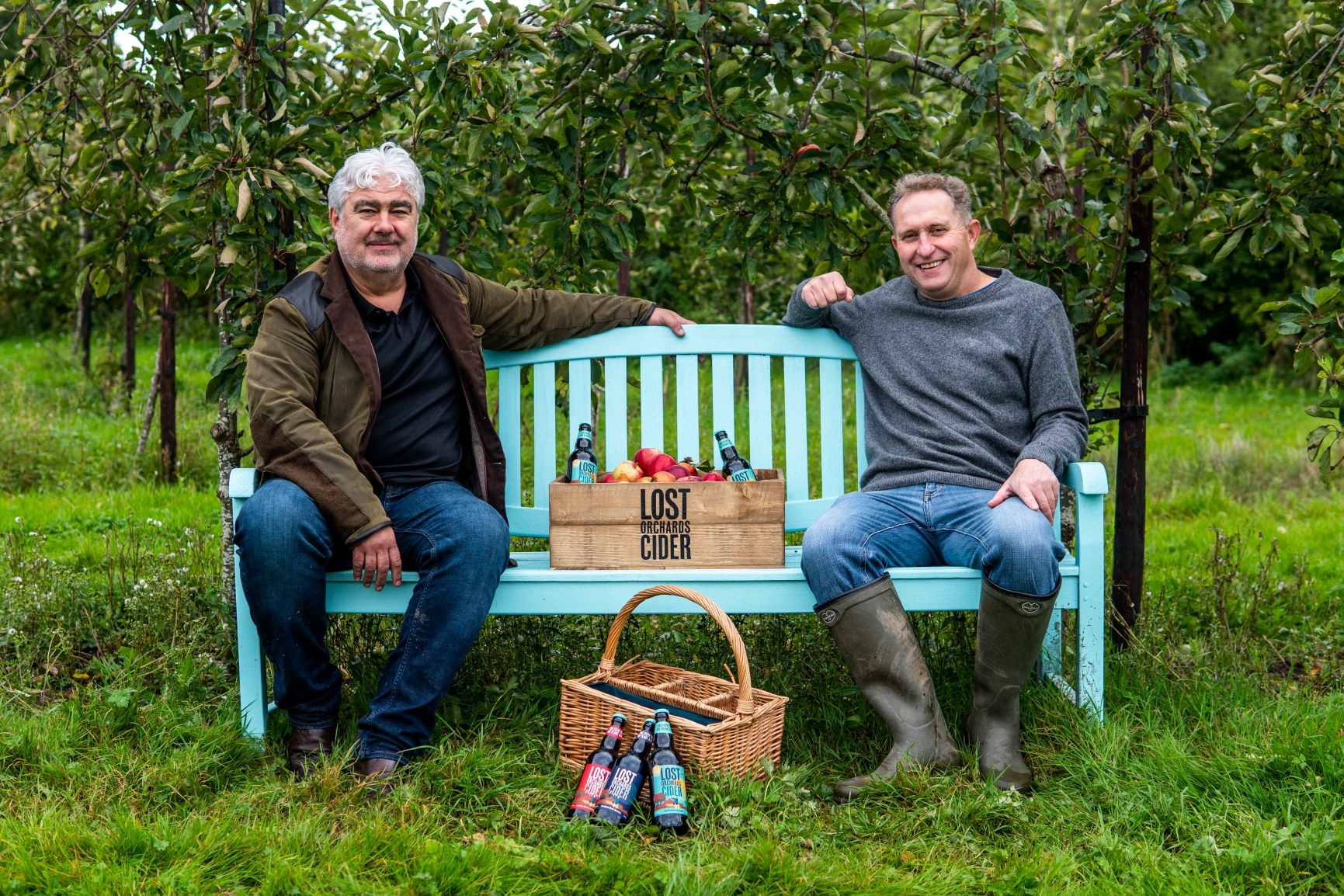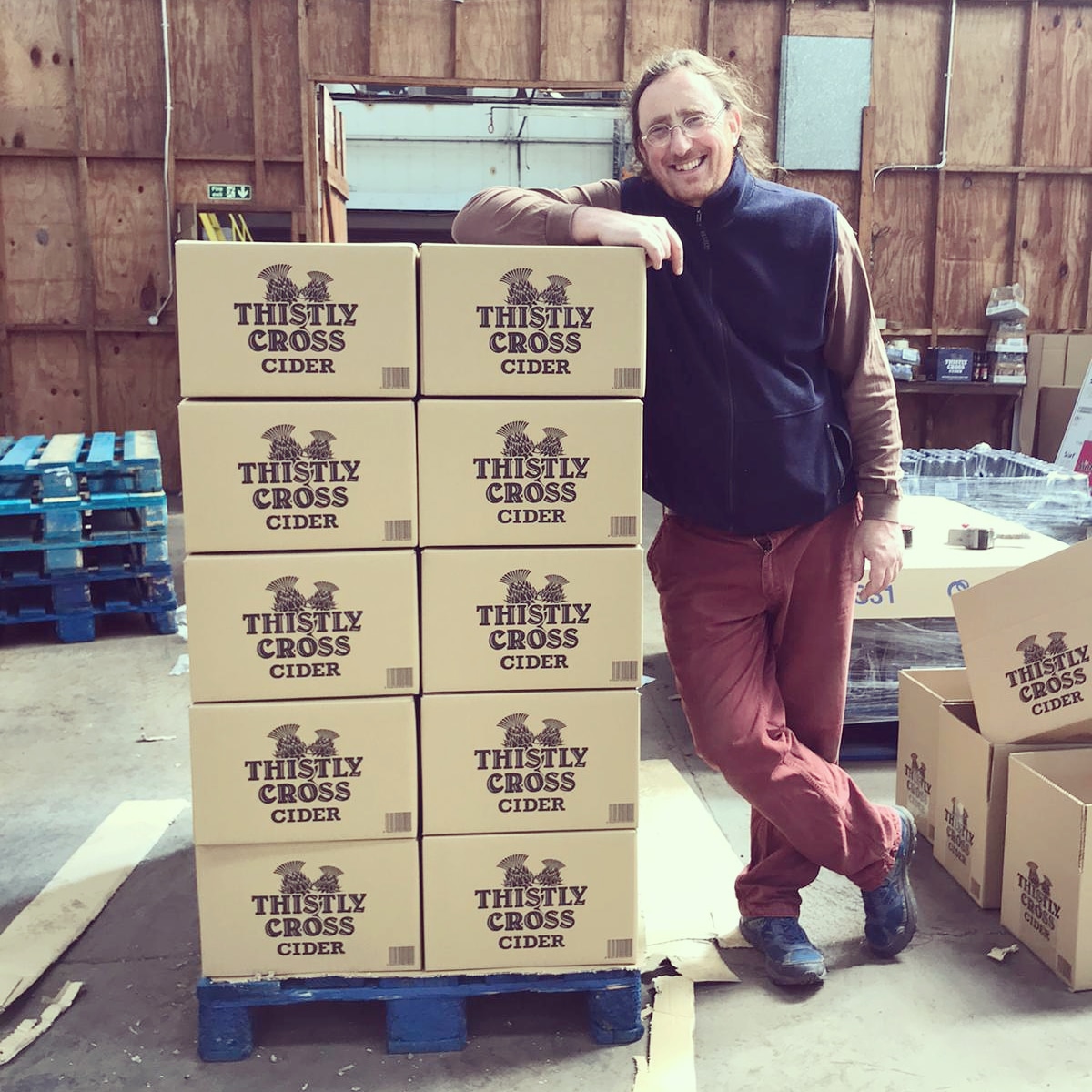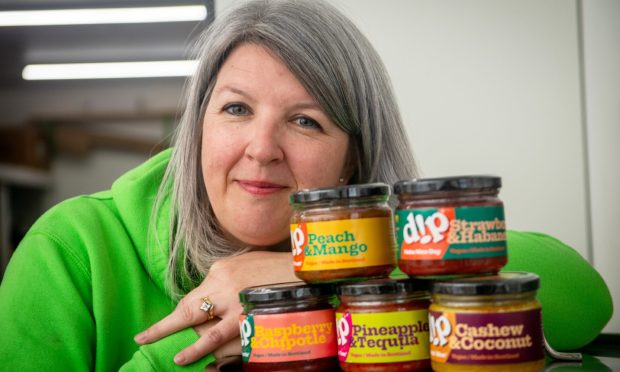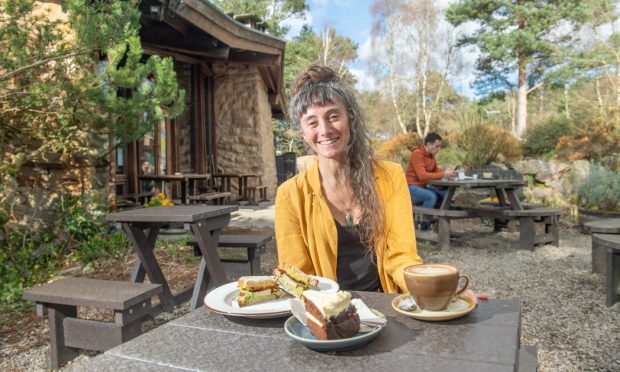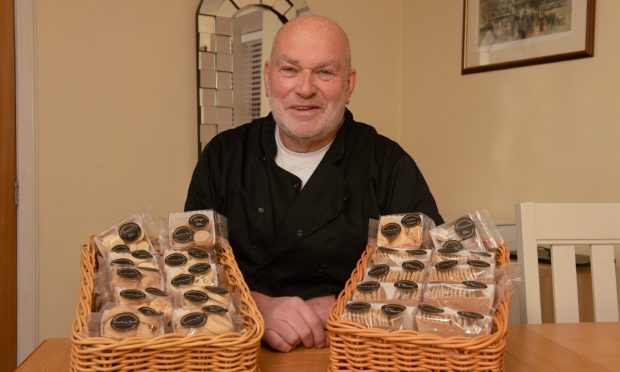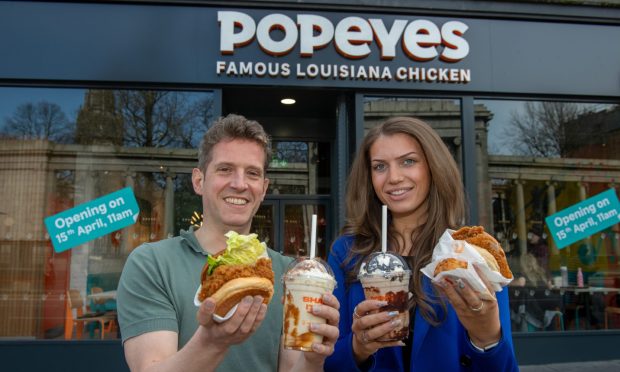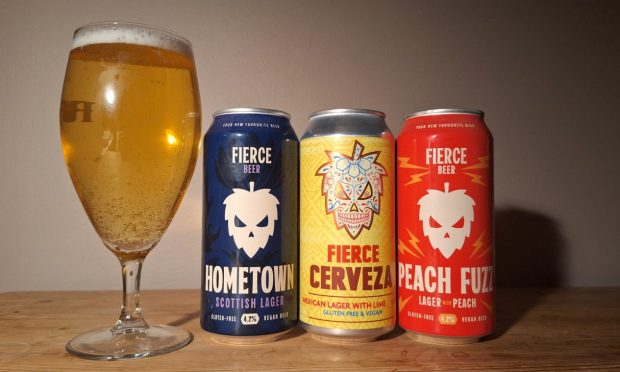Cider firms are firing on all cylinders as they face their busiest time to date, with online sales and demand for independent products sharply sky rocketing.
One of the positives to emerge from lockdown has been its ability to unite consumers behind their local food and drink producers in a way that has not been seen in decades.
While some have had their milk, vegetable boxes, meat and fish orders delivered to their door for years, the countless new locally-conscious shoppers to emerge have been a Godsend for the industry.
And it’s not just the usual supermarket shop which seems to have changed. The way we purchase alcohol, turning to buy direct from local breweries and distillers has also changed.
Take Scottish cider for example. Not as mainstream as its beer cousin, the cider industry generates around £2bn a year, according to market research firm CGA.
Independent Scottish brands very much focus on heritage, and with many of them now fighting for vital market space, it is no surprise they have all boosted online activity.
One cider maker who has had to develop an online offering from scratch is Ryan Sealey of Caledonian Cider Co.
Based at Conon Bridge on the Black Isle near Inverness, lockdown is the first time Ryan has ever sold his products online since establishing in 2014.
He said: “Things are going quite well just now. I usually sell my products at markets and events like the Black Isle Show – I didn’t sell anything online before this. I managed to secure a few occasional licenses which meant I could sell online, direct to people and do local drop offs within a 10-mile radius of my home, something I’ve never been able to do before. People across the country who have wanted to buy my cider for ages now can. It’s quite rare and I only sold it at certain events. I’m actually selling more cider than ever before.”
Making cider behind his house, what makes Ryan’s product so special is that he ferments it with wild yeast naturally found in his one ingredient – apples.
He said: “Depending on how you make cider will determine when you make it. I make it once a year when the apples are ready around November/December and then sell my product throughout the year. The more you make, the more you have to sell. I usually sell out around August time. I don’t make masses of it and what I do make sells well.
“The sales and response have been really good. There’s been a shift in the products I’m selling more of. I sell most of my products in 330ml bottles and my North and South has always been in demand. My Champagne-style bottles (750ml) – my limited edition ones – are the products I’m selling most of.
“Everything is fermented wild for my products. I have one ingredient really. I press the apples, put them into barrels and wait for them to ferment. When the blossom starts showing on the trees in spring that usually means the cider is fermented. Some finished really sweet and low in alcohol, and then some is dry and higher in alcohol. For the North and South product, I mix two different ciders together to make it.”
I usually sell my products at markets and events like the Black Isle Show – I didn’t sell anything online before this.”
Ryan Sealey, owner of Caledonian Cider Co.
“I work with two local orchards to get apples for my cider. One of them has a couple of thousand trees planted and you can go and pick your own which is great. Fruit picking isn’t really an industry in the Highlands, so we just do it ourselves.”
In Dundee the team behind Lost Orchards Cider, a new brand which launched in October last year, have also turned their attention online, having been focused on on-trade primarily.
Andy Husband, co-founder of Lost Orchards Cider at East Adamson Farm, said: “We only launched our online store in the last few weeks. This has been to great success with many of our engaged fans excited to be able to buy online and enjoy our products at home for the first time.
“Our online store now ships UK-wide, giving us the opportunity to put Scotland on the map as a key cider-making region.
“As a new cider launching into the market we saw great success, picking up a number of awards and being listed in over 300 bars and restaurants across Scotland.
“We’re still selling to wholesalers but in smaller quantities. We have also benefited from a shift in consumer shopping behaviour, with local village and farm shops seeing an increase in custom as people avoid the larger supermarkets.
“We think the Scottish cider industry will continue to flourish. We are seeing continued growth and have noticed a shift in consumer behaviour with more customers wanting to support their local businesses, having concerns about the environment and demanding premium products with provenance, which are all key areas for us.”
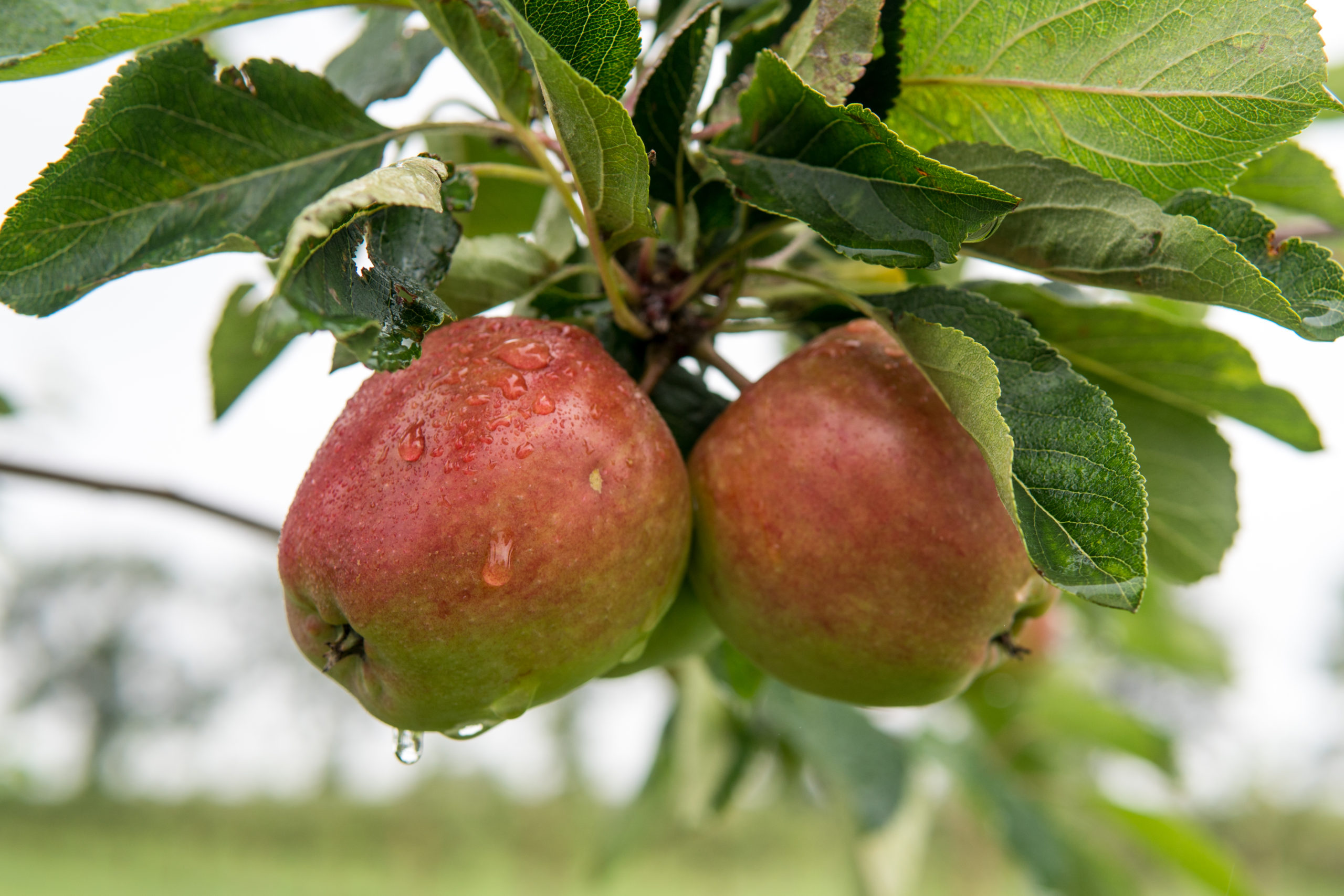
On a mission to replant Scotland’s lost orchards, the team are passionate about supporting and championing local farmers and produce.
Andy added: “Part of our mission is to replant the orchards of Scotland which were lost in the early 1900s. We’ve planted 5,000 trees now in partnership with our Grower’s Groups (four additional farms in Angus). The cider is made from these apples which are grown, pressed and fermented with Champagne yeast all in the cidery on the farm. Our Scottish Dark Berries and Scottish Red Berries ciders are both made with fruits growing in the Angus area, supporting the local farming industry.
“We are still producing at the same levels, however, we have made a shift in the packaging format, going from kegs to bottles to supply customers at home. We’re a family-run farm so socially distancing isn’t an issue.
“The classic Scottish Pure Apple has always been the most popular, followed by the Scottish Dark Berries. We saw significant demand for mixed flavour packs which we have just recently launched to great success.”
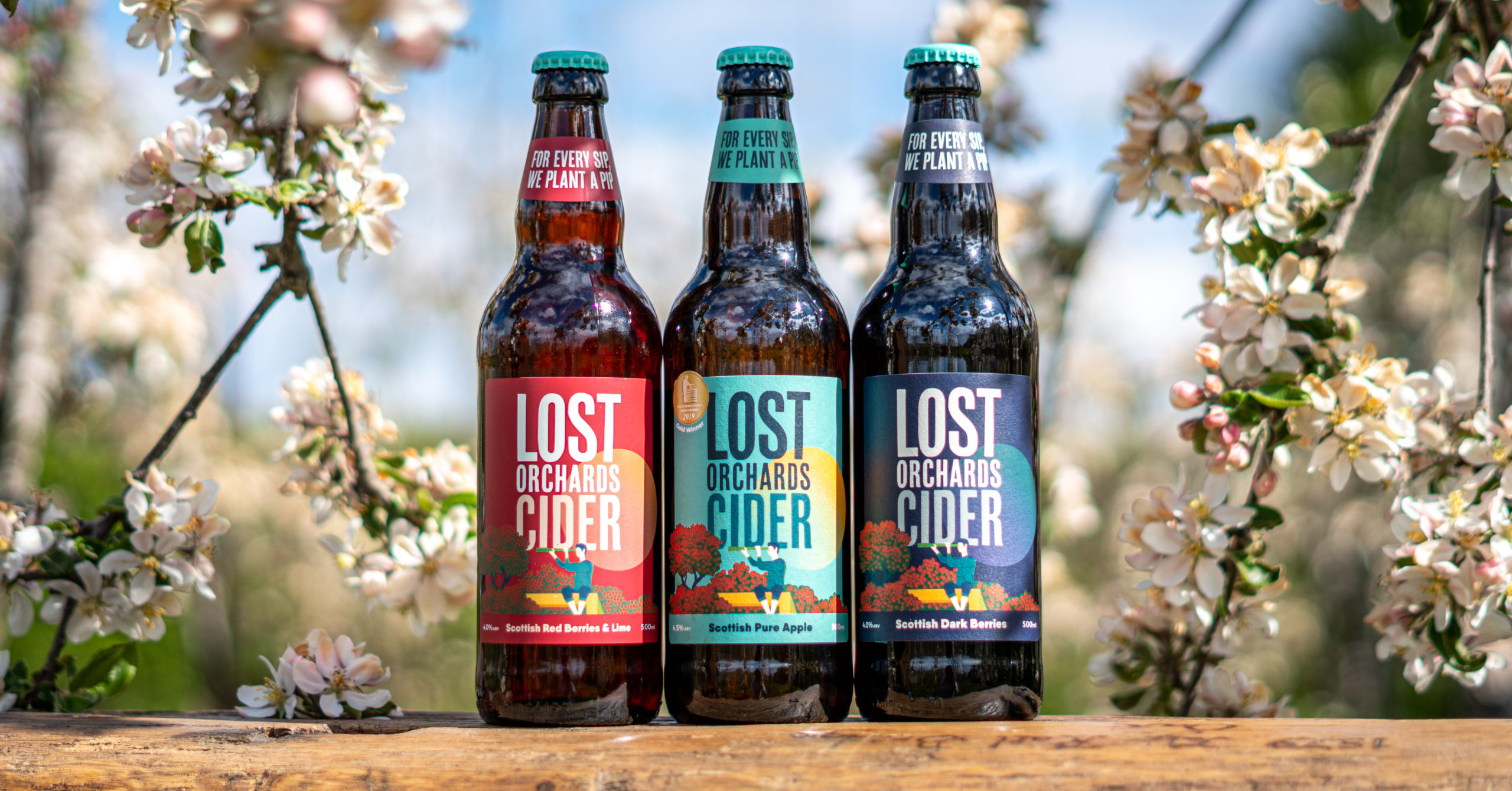
While sales for fruit cider increase across the UK, the CGA found that in December 2019, the value of fruit cider sales had risen 1.2% in the last year, compared to a 2.8% fall for apple brands. Fruit varieties held a 25% share of the cider market four years ago, but its stake has soared to nearly 40% now.
Ahead of the curve, Peter Stuart, owner of Thistly Cross Cider based in East Lothian, prides himself on offering a diverse range of flavoured and traditional cider.
He said:”Consumers drink about 30% fruit cider in comparison to traditional, but there’s less of an understanding on provenance with fruit cider drinkers and I feel we’ve made a big difference over the past year by using real fruit instead of artificial.
“Our most popular product over the 12 months has been our Whisky Cask cider. What we’ve noticed is that consumers are really interested in our original 6.2% ABV. UK consumers are used to cider being sparkling, but cider is actually naturally still. You’ve got to put it through a second process to make it sparkling. We’ve been doing a lot of bag in the boxes. They are quite traditional but it’s also quite innovative and ecological, too. It’s a bladder in a box and it’s easily recyclable. Down south about 40% of the cider sales are bag in the box (similar to wine boxes) and it’s nice to see consumers picking this up.
“Scottish Fruits is the first of our new branded stock to hit our online store, so we’re excited to reveal more in the coming months. We’ve also taken stock which was developed for a retailer in Ukraine in cans and now made it available in the UK.

“The number of people ordering online over the past eight weeks has increased exponentially. It’s like Christmas every day here. The sales we have in the lead up to Christmas is essentially what we are experiencing now. Some of my friends down south are actually selling more beer than pre-covid. The demand and interest is there. It’s been a lot of hard work keeping up with it.”
Already well established, Peter says having listings in supermarkets across Scotland has been vital during the lockdown period in getting in front of other shoppers.
“The supermarkets have been incredible over the lockdown period. It’s fair to say they have been a lifeline for suppliers producers and consumers,” said Peter.
“I don’t think they have the capacity to list new lines just now, so there’s a lot of untapped potential there. But we’ve been very grateful for the existing business we have set up with them. We supply to all of the Scottish supermarkets, mainly with our traditional range. We’ve also picked up listings for our real fruit ciders, too.
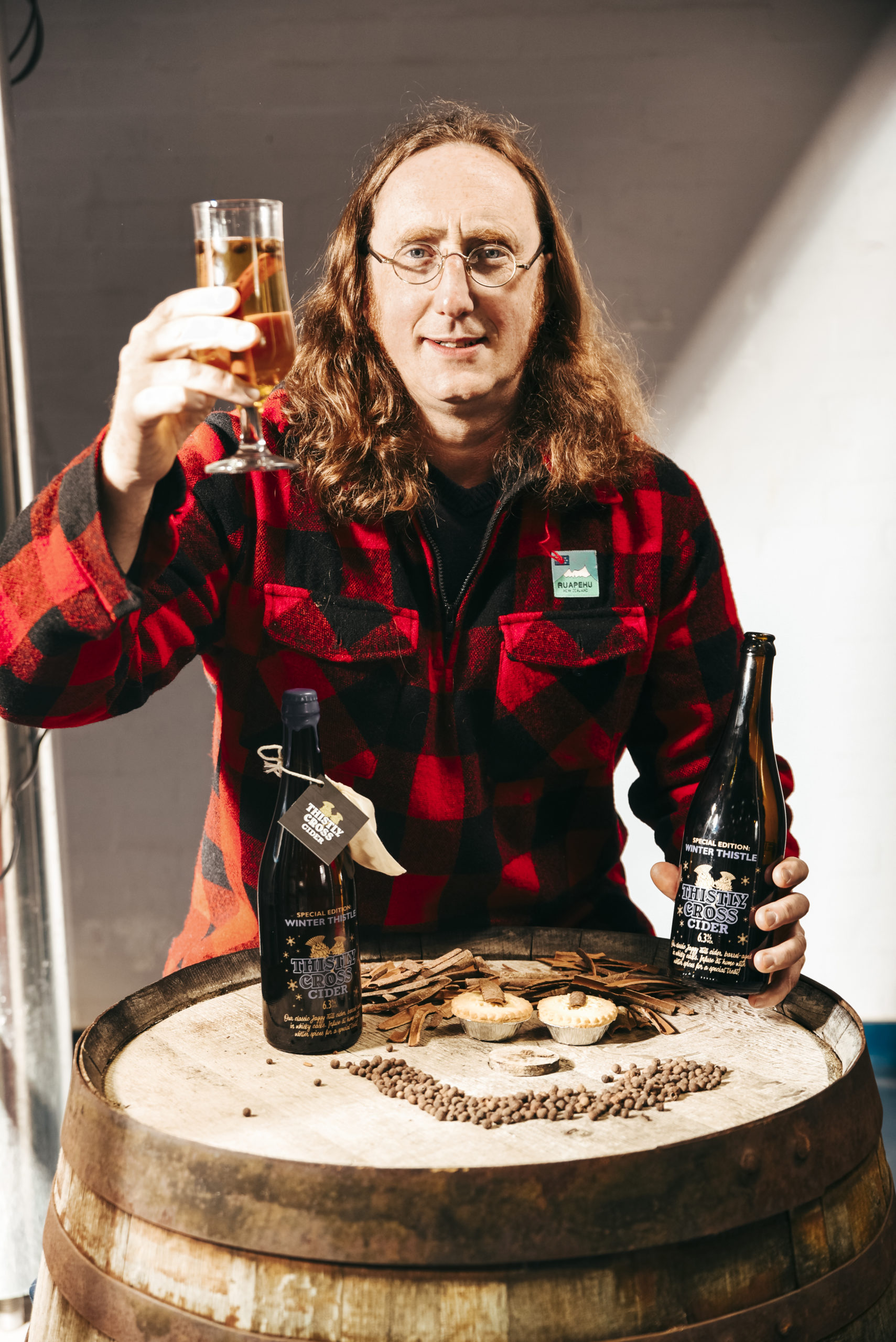
“Thistly Cross has changed a lot over the past few years. The farmer I first started the business with has now retired and now I have new business partners, John and Lynne Dunsmore. John’s well known in the industry and they have been running the Edinburgh Beer Factory, and we now work in partnership. Pre-covid we were sharing some resources and it was going really well. John’s expertise was really helpful to the two craft businesses, and now more than ever it is important to collaborate to give us the dynamism to survive and maybe even thrive.”
He added: “I think covid-19 will create a lot of heartache and sorrow for lots of people and the effects of this time will be substantial. I think for the hospitality and drinks manufacturing industries it’s going to be critical for a large number of small producers. It will reduce choice and variety in the short term (three to six months) but I think anyone who is involved in the industry will have to take a longer view. There’s been a sense of culture rising and this situation will cause entrepreneurs to become a lot more entrepreneurial which will create new brands, categories and encourage new approaches which I’m very excited about.
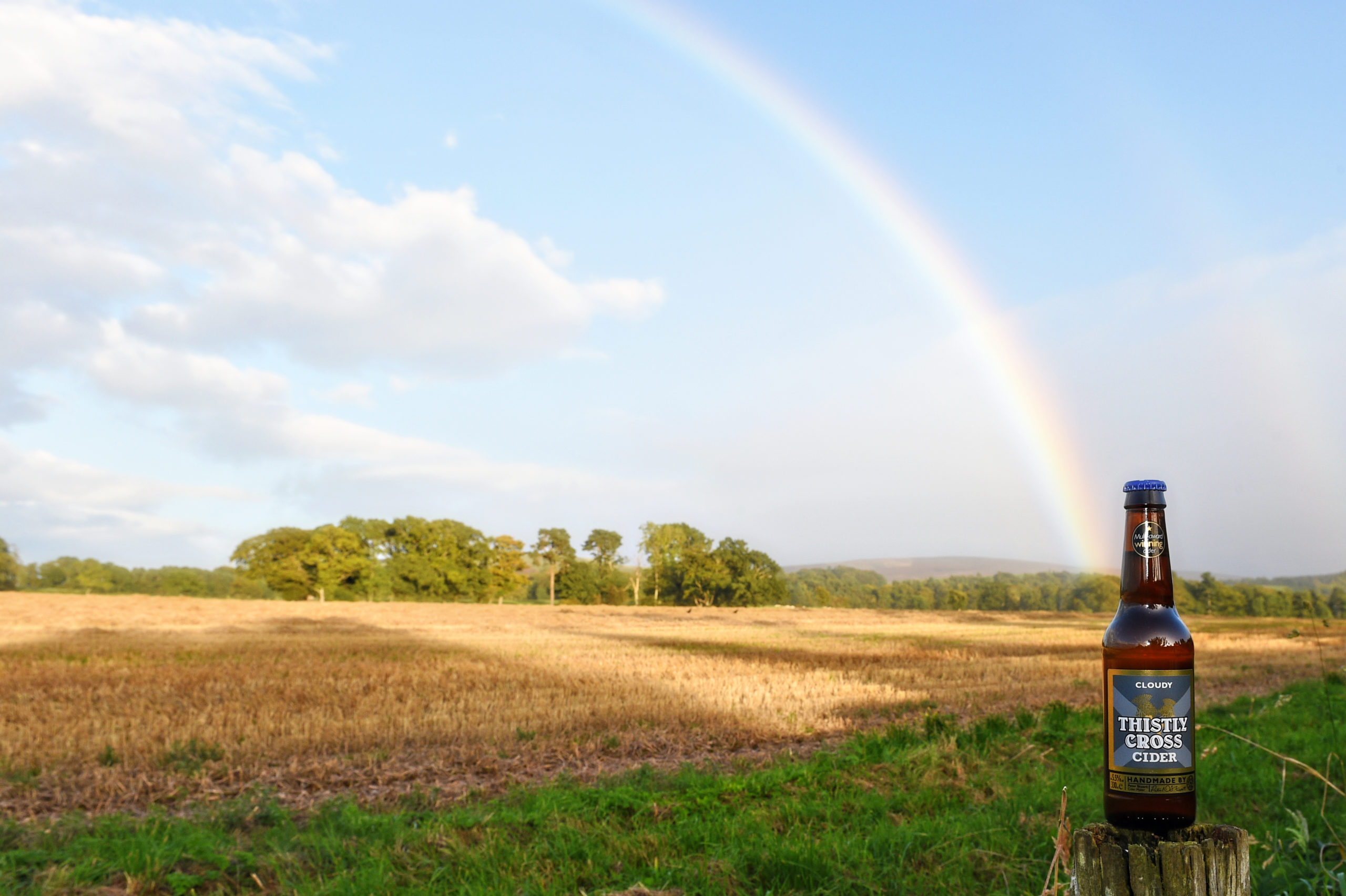
“We’re now hooked into this life-force which is online sales. We’re learning so much on a daily basis and that’s only going to be positive for us.
“I’m very worried for the pubs, restaurants and the on-trade. It’s going to be a much tougher journey and there will be a lot more casualties. I still think there will be room for stunning individuals to create stunning spaces for people to go to and feel safe. In time I think we will see something a little closer to the United States that has this amazing pub culture. The year 2021 is going to be very busy and will require a lot of hard work.”
